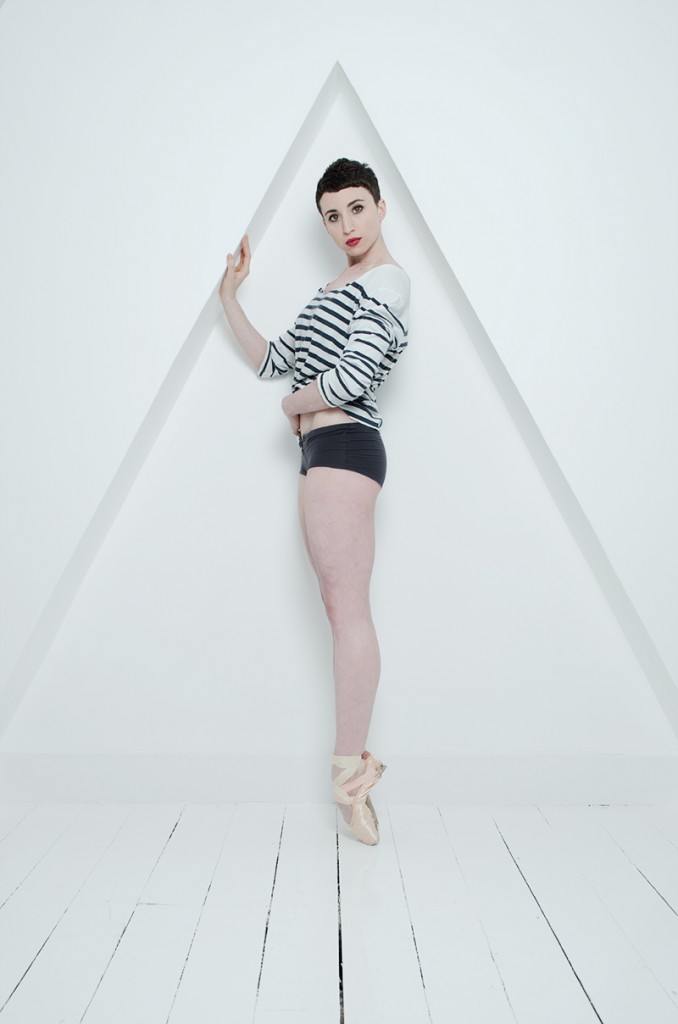Making It: From a Noun to a Verb
BY GABRIELLE ZUCKER
When I was 13, my definition of “making it” meant getting into a ballet company. It was as simple and as complicated as that. I would start out as a student, and then through profoundly hard work, find a way to turn myself into a professional.
There are a lot of careers where becoming a professional provides you with a well-trodden path. That’s not to say that something so clearly defined means it’s easy to achieve; it does, however, tend to mean there are guidelines to follow. If someone wants to become a doctor or a lawyer, there’s a requisite amount of schooling, even requisite courses one must take. There are degrees and credentials to amass; there are precedents. Those parameters are all but obliterated in a field as subjective as the arts. Dance is not a meritocracy, and success is a fickle muse. Aiming to be in a company, though, seemed to cut a direct path through that haziness. If I trained a certain amount of hours in the right schools, and pushed myself in the right direction, I’d land in a place where there could be artistic satisfaction, job security and the potential for upwards growth — not to mention accolades and an easily recognizable form of achievement. I believed that if I could fulfill all criteria anyone threw at me, then one day, like something out of a Kafka story, I’d finally awake and find myself transformed.
Now, if “making it” is a verb, something that requires action and effort, I was regarding it as a noun synonymous with “success” — a thing to be acquired. I’d put myself in a position where, in order get where I wanted to be, someone had to come along and give me something. Or grant me permission. Or show me their validation. I was working my hardest, to be sure. There was a lot of action and effort on my part — but I was doing it on someone else’s terms. My self-belief hinged on someone else’s approval.
The thing is, I cannot ignore the fact that as a working dancer, other people’s opinions and actions have an impact on my career. As human beings, we are never really in isolation, and we do not live in a vacuum. What I do believe though, is that once you know who you are as an individual and what kind of work resonates with you, then you get to be the arbiter of your artistic identity. Others’ points of view can be valuable as both critique and support, but you define what success is for you. There’s something incredibly freeing about that.
I also cannot say that becoming a professional marks an endpoint on a journey, and that once you achieve that, you’ve arrived. When I was a young dancer, I’d always fantasized about reaching some clear, obvious moment when I’d look at myself and know I’d made it. I’d somehow be changed, better. I now realize that such moments don’t really exist because part of being an artist is the constant pursuit to improve your work and discover something new. Reaching one goal is the automatic start of another, and the achievements, failures, successes and disappointments that come with that are all equally valid. I think that’s why I’ve never met a single artist who’s ever truly felt like they’ve made it — because really, as long as they’re somewhere in the cycle of that process, they really are making it. There’s just no finish line to signify that.
I have been lucky enough to carve out a life for myself as a freelance professional dancer. I frequently work in opera, as both a principal dancer and a choreographer, and have recently found my way into doing more projects on-camera and on television. It is a far cry from the career I imagined for myself at 13, and my path to get here has been anything but linear. At times, its circuitousness has been discouraging. Constant instability breeds self-doubt and insecurity, and I have plenty of moments where I question the validity of what it is I’m even doing. However, in learning how to define my own terms amidst that kind of uncertainty — and to be satisfied by that process — I have found myself. Success is a static thing, a proverbial brass ring to grab as you sit still on a merry-go-round. But, making it is the ability to always be moving, changing, and open to whatever lies ahead.
Gabrielle Zucker is a professional dancer and choreographer who works both on the stage and in front of the camera. She has created roles for Alonzo King’s LINES Ballet, San Francisco Opera, Santa Fe Opera, Arizona Opera, San Diego Opera, Florida Grand Opera and Baltimore Opera. She has choreographed “Eugene Onegin” for Arizona Opera, an excerpt of “A Midsummer Night’s Dream” for the Merola Opera Gala at the San Francisco Opera Center, and several music videos. She has also assisted on productions of “L’elisir d’amore” and “La Rondine” at the Merola Opera Program and Florida Grand Opera, respectively. Other recent work includes television and on-camera engagements, such as CBS Television’s “Elementary”, the featured ballerina for Atlantic Records’ band Finish Ticket and their single, “Tranquilize,” and “On the Floor” for DJ Worthy. She was also a Black Widow Ballerina for Iggy Azalea featuring Rita Ora, performing with them on both the MTV Video Music Awards and The Ellen Degeneres Show. Additionally, Ms. Zucker can be seen in several ads for Hewlett-Packard, Intel, and Benefit Cosmetics. For more info visit www.gabriellezucker.com.

